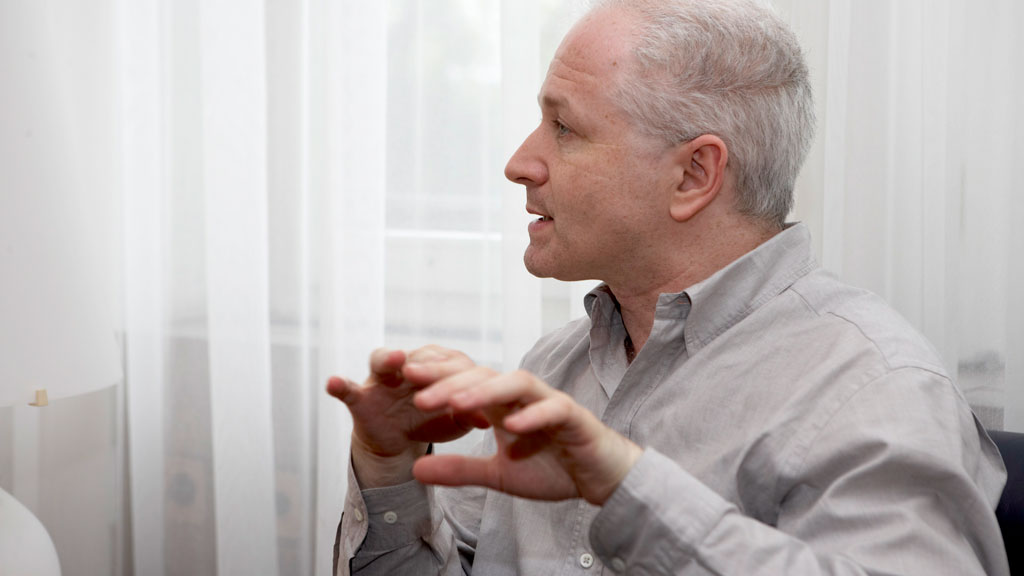Last night’s concert at the Barbican focused on the theme of dreams and night-time, centred around the UK premiere of Dream of the Song by George Benjamin. But the one piece on the programme that did not fit with the theme stole the show. Stravinsky’s American-period masterpiece Symphony in Three Movements supplied the energy and rhythmic impetus lacking elsewhere.
George Benjamin’s Dream of the Song combined arrestingly beautiful poems translated from medieval Spanish with fragments of Lorca, scored for solo countertenor (Iestyn Davies) accompanied by a small orchestra and women’s chorus (the female half of the BBC Singers). Benjamin’s fascination with the countertenor voice was clearly not sated by creating the lead role in his 2012 opera Written on Skin, and he writes beautifully and unsentimentally for this voice type.

Iestyn Davies’s performance was at once both dreamy and hard-edged, with a largely dark tone to match the mood of the texts. The orchestration had all the Benjamin hallmarks of craft and ingenuity (the composer pictured above), and was also transparent enough for the voice to carry over the top. Dream of the Song is not a warm or reassuring piece, and it all hinges on the orchestral writing and the solo delivery, both of which were excellent. If there is a criticism it is that the music was a bit uniformly paced, lacking contrast and rhythmic bite, although of course it could be argued that not all pieces need those qualities, if there are enough other things going on.
Before the interval, we heard Debussy’s Nocturnes in a performance that for all its carefully balanced textures – and conductor Oliver Knussen clearly was at pains over these – felt a bit subdued. There was some more colourful playing in “Fêtes”, the second movement, but even here the playing lacked a bit of spark and felt too polite. This music needs an air of abandon, but it never quite took flight.
Right from the bracing opening gesture there was a bounce lacking elsewhereAlso a bit disappointing was the late Gunther Schuller’s Dreamscape, written in 2012 but receiving its UK premiere here. The title comes from the fact the piece came to Schuller, almost complete, in a dream. This was a restless piece, squeezing three movements into 11 minutes, but felt like a string of events happening in succession, without much musical narrative to hold things together.
Symphony in Three Movements also has an episodic structure, but in Stravinsky’s hands the fragmentary form somehow coheres. Right from the bracing opening gesture there was a bounce lacking elsewhere. It’s not quite clear what logic fitted it with the rest of programme, unless it was just to supply this much needed effervescence.
In this symphony Stravinsky looks both back – Rite-like chords and shades of Petrushka in the first movement – and forward: there are pre-echoes of The Rake’s Progress in the Andante and even of the serial Movements in the finale. Although not flawless (there were a couple of moments of slightly shaky ensemble) the playing mostly sparkled, with some excellent work by timpanist Dominic Hackett and pianist Elizabeth Burley.
Earlier, Oliver Knussen started the concert with an unscheduled tribute to Sir Peter Maxwell Davies, a short canon for winds from 1967, written as a homage to Stravinsky. This was a touching mark of respect, appropriately astringent and modest, and received with a minute’s silence.














Add comment